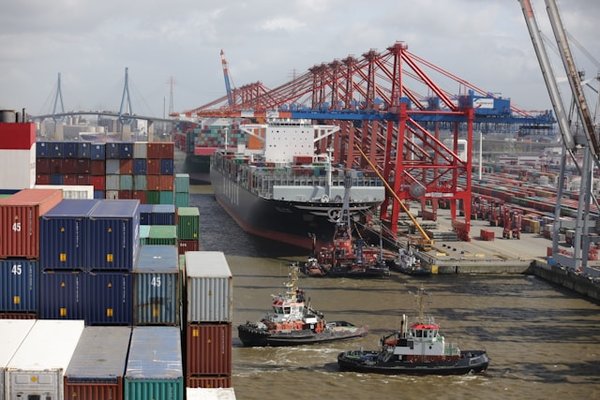Business
What Are the Effective Techniques for Managing Supply Chain Resilience in the UK?
I
Inaya
August 28, 2024
5 min read
The global economy heavily relies on intricate supply chains, which enable businesses to deliver goods and services efficiently. Disruptions to these chains can have dire consequences, ranging from revenue loss to reputational damage. Thus, supply chain resilience has become a critical focus for businesses worldwide. In this article, we dive into effective techniques for managing supply chain resilience in the UK, ensuring that your business can withstand and quickly recover from disruptions.
The Importance of Supply Chain Resilience
Supply chain resilience is the capacity of a supply chain to anticipate, prepare for, respond to, and recover from disruptions. In today’s interconnected world, disruptions can stem from various sources, including natural disasters, geopolitical tensions, cyber-attacks, and pandemics. The COVID-19 pandemic underscored the fragility of global supply chains, leading to a renewed emphasis on resilience.
For businesses in the UK, building a resilient supply chain involves not only mitigating risks but also ensuring business continuity and long-term sustainability. This means identifying potential vulnerabilities, implementing robust strategies, and leveraging technologies to enhance visibility and response capabilities. The goal is to maintain the flow of critical goods and services even in the face of unforeseen challenges.
Risk Assessment and Management
Effective risk assessment is the cornerstone of supply chain resilience. By identifying and evaluating potential risks, businesses can develop strategies to mitigate their impact. This involves analyzing the entire supply chain, from raw material sourcing to final delivery, and considering various risk factors.
In the UK, businesses must account for risks such as natural disasters, political instability, regulatory changes, and technological failures. For instance, the reliance on critical imports of goods and materials can expose supply chains to geopolitical disruptions. By conducting comprehensive risk assessments, businesses can identify weak points and develop contingency plans.
Risk management strategies may include diversifying suppliers, maintaining safety stock, and investing in resilient logistics networks. Additionally, leveraging real-time data and analytics can enhance risk detection and response capabilities. By staying informed about global events and market trends, businesses can proactively adjust their operations to mitigate potential disruptions.
Leveraging Technology and Data
In the digital age, technology plays a pivotal role in enhancing supply chain resilience. Advanced technologies such as the Internet of Things (IoT), big data analytics, and artificial intelligence (AI) enable businesses to monitor and manage their supply chains with unprecedented precision.
Real-time data is crucial for making informed decisions and responding quickly to disruptions. IoT devices can provide real-time visibility into the status of shipments, inventory levels, and environmental conditions. This data can be analyzed to identify patterns, predict potential chain disruptions, and optimize operations.
AI and machine learning algorithms can further enhance risk assessment and management by predicting potential disruptions and recommending appropriate actions. For example, AI can analyze weather patterns to anticipate natural disasters or monitor social media to detect early signs of geopolitical tensions.
Blockchain technology also holds promise for supply chain resilience. By providing a transparent and immutable record of transactions, blockchain can enhance traceability and trust within the supply chain. This is particularly valuable for ensuring the authenticity and quality of critical goods and critical minerals.
Diversification and Supplier Relationships
One of the most effective techniques for enhancing supply chain resilience is diversification. Relying on a single supplier or geographic region can leave businesses vulnerable to chain shocks. By diversifying suppliers and sourcing regions, businesses can reduce the risk of chain disruptions and ensure a steady flow of goods.
Building strong relationships with suppliers is equally important. Collaborative partnerships can enhance communication and coordination, enabling quicker responses to disruptions. In the UK, businesses should prioritize building relationships with suppliers who have a proven track record of reliability and resilience.
Supplier audits and assessments can also play a role in ensuring supplier resilience. By evaluating suppliers’ risk management practices, businesses can identify potential weak points and work together to address them. This collaborative approach can enhance the resilience of the entire supply chain.
Strategic Inventory Management
Strategic inventory management is another critical aspect of supply chain resilience. Maintaining an optimal level of inventory can help businesses weather disruptions without incurring excessive costs. This involves balancing the need for safety stock with the cost of holding inventory.
In the UK, businesses should consider the lead times and reliability of their suppliers when determining inventory levels. For instance, if a supplier is located in a region prone to natural disasters, maintaining higher safety stock levels may be prudent. On the other hand, for suppliers with shorter lead times and proven reliability, businesses can reduce inventory levels to minimize costs.
Technology can also play a role in optimizing inventory management. Real-time data on inventory levels, demand patterns, and supplier performance can help businesses make informed decisions about inventory levels. Additionally, advanced analytics can identify trends and predict future demand, enabling businesses to adjust their inventory strategies accordingly.
Managing supply chain resilience is crucial for businesses in the UK, particularly in an era of increasing global uncertainties. By adopting effective techniques such as risk assessment and management, leveraging technology and data, diversifying suppliers, and optimizing inventory management, businesses can enhance their ability to withstand and recover from disruptions.
The COVID pandemic has highlighted the importance of supply chain resilience, and businesses must prioritize this aspect to ensure long-term sustainability and business continuity. By implementing robust strategies and staying adaptable, businesses can navigate the complexities of global trade and maintain the flow of critical goods in the face of disruptions.
In conclusion, building a resilient supply chain requires a proactive approach, continuous monitoring, and collaboration with suppliers. By embracing these techniques, businesses in the UK can strengthen their supply chains, mitigate risks, and thrive in an unpredictable world.
Business
View all articles Business →
